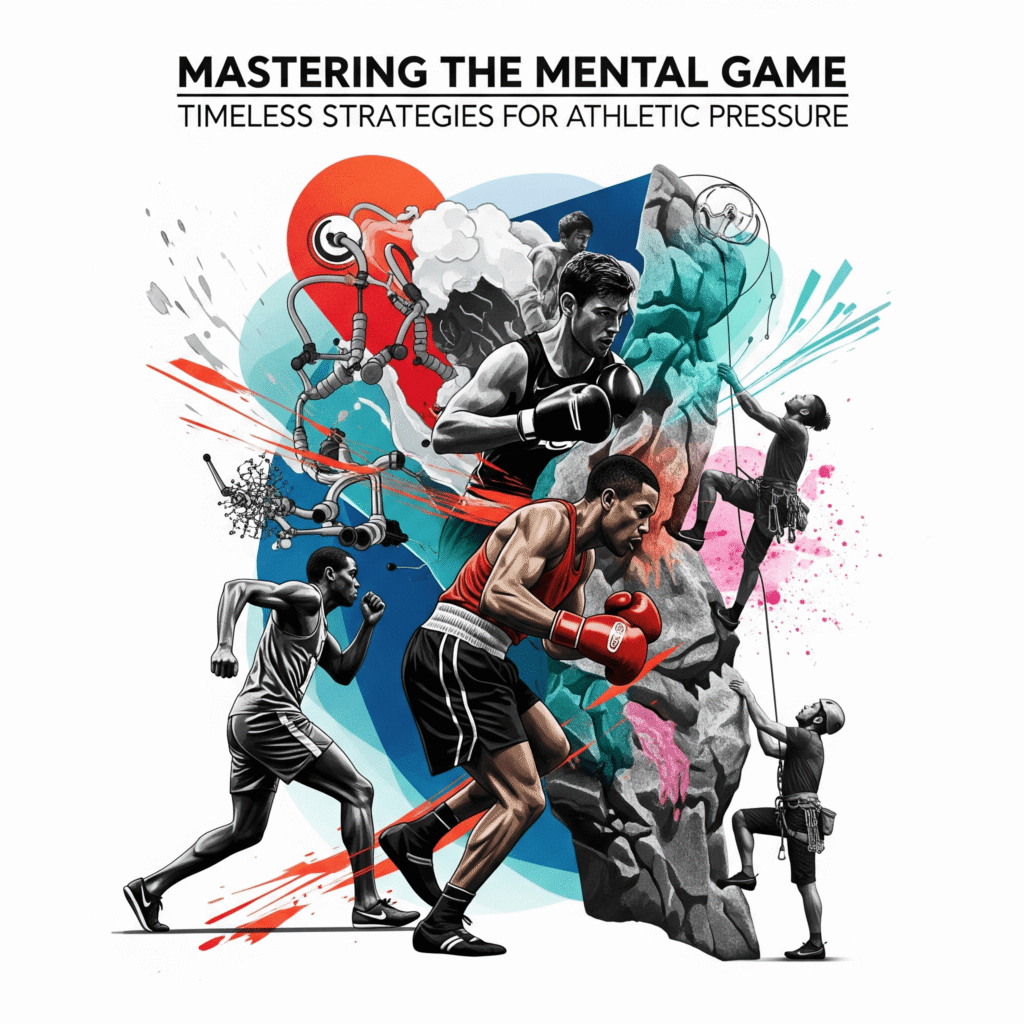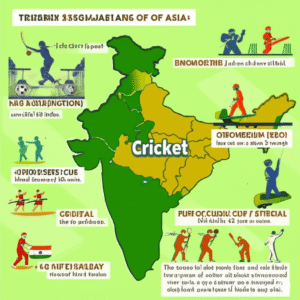Picture this: It’s the 1988 Olympics, and Greg Louganis — the greatest diver in history — smashes his head on the springboard during preliminaries. Blood everywhere. Concussion protocol? This was 1988. Nine stitches later, he’s back on the board for the finals. Not only does he compete, he delivers the dive of his life to win gold. What separated Louganis from mere mortals wasn’t just his physical skill — it was his ability to transform crushing pressure into pure performance fuel. The mental game isn’t some mystical concept; it’s a trainable skill that determines who thrives and who chokes when everything’s on the line.
The anatomy of choking — why champions crumble when it matters most
Let’s talk about Scott Norwood. Wide right. Super Bowl XXV. A 47-yard field goal that would’ve given Buffalo their first championship. Norwood was money from that distance all season — 74% accuracy. But when 100 million people were watching, his leg turned to jelly. The ball sailed wide right, and Bills fans still wake up in cold sweats thirty years later.
The neuroscience of performance anxiety
Your brain doesn’t distinguish between a charging tiger and a pressure-packed moment in competition. Both trigger the same fight-or-flight response. Adrenaline floods your system. Heart rate spikes. Fine motor skills deteriorate. Cognitive processing narrows to tunnel vision. This primal response kept our ancestors alive, but it’s the enemy of athletic precision. Modern neuroscience reveals that pressure literally rewires your brain, shifting control from the prefrontal cortex (conscious thought) to the limbic system (emotional reactions).
Why natural talent becomes a liability under pressure
Here’s the cruel irony: the more naturally gifted you are, the more vulnerable you become to choking. Talented athletes often rely on unconscious competence — they perform instinctively without thinking. But pressure makes you think. Suddenly, you’re consciously controlling movements that should be automatic. It’s like trying to walk while thinking about each step. Paralysis by analysis kills performance faster than any opponent.
The pressure paradox in modern sports
Today’s athletes face unprecedented pressure. Social media amplifies every mistake. Betting markets create financial stakes beyond just winning and losing. Youth sports have become professionalized to an insane degree. Parents mortgage houses for travel teams. Kids specialize in single sports by age eight. We’re creating pressure cookers instead of playgrounds, and the mental health statistics are frightening.
Ancient wisdom meets modern neuroscience — proven techniques from Zen masters and Navy SEALs
The ancient Samurai had a concept called “mushin” — the mind without mind. A state of no-mindedness where action flows without conscious interference. Navy SEALs call it “getting comfortable being uncomfortable.” Sports psychologists term it “flow state.” Different words, same concept: performing optimally when pressure peaks.
Stoic philosophy for athletic performance
Marcus Aurelius never played professional sports, but his teachings dominate modern sports psychology. Stoicism teaches that you can’t control outcomes, only your effort and response. This mental framework is revolutionary for athletes who obsess over results. Focus on process, not outcomes. Control the controllable. Accept what you cannot change.
Eastern meditation techniques adapted for competition
Buddhist monks spend decades mastering mindfulness — moment-to-moment awareness without judgment. Athletes need this skill compressed into weeks or months. Mindfulness training helps athletes stay present instead of worrying about future outcomes or past mistakes. Jon Kabat-Zinn’s work with Olympic athletes proves that meditation literally rewires the brain for better emotional regulation and focus.
Military mental toughness protocols
Special forces operators face life-or-death pressure regularly. Their training protocols translate directly to athletic competition. Stress inoculation — gradually exposing yourself to increasing pressure while maintaining performance standards. Compartmentalization — focusing on immediate tasks rather than overwhelming big pictures. Mission-first mentality — subordinating ego to objective.
Pressure training protocols — building mental armor before you need it
You can’t develop pressure tolerance during pressure moments. Mental toughness is built in practice, not competition. Elite athletes deliberately create stressful training environments to inoculate themselves against real pressure.
The most effective pressure training protocols systematically increase stress while maintaining performance standards. Start with mild stressors and gradually escalate intensity. The goal isn’t to eliminate pressure — it’s to perform optimally despite pressure.
Simulation training that mirrors real competition
- Crowd noise simulation: Training with loud music or recorded crowd noise
- Fatigue protocols: Practicing skills when physically exhausted
- Distraction training: Maintaining focus despite environmental chaos
- Stakes elevation: Adding meaningful consequences to practice performances
- Time pressure drills: Reducing available decision-making time
- Failure recovery: Practicing how to respond after mistakes
The key is specificity. If you compete in front of crowds, train with noise. If your sport requires quick decisions, practice under time pressure. If mistakes compound in your sport, rehearse recovery protocols.
Progressive stress inoculation methods
Military research shows that stress inoculation follows predictable patterns. Low-level stress first, then moderate, then high. Each level must be mastered before advancing. This isn’t about suffering; it’s about systematic adaptation. Your nervous system becomes increasingly comfortable with discomfort.
The champion’s mindset — reframing stress as your secret competitive weapon
Winners think differently about pressure. They don’t eliminate it; they reframe it. Pressure becomes privilege. Stress becomes energy. Anxiety becomes excitement. This isn’t positive thinking nonsense — it’s cognitive restructuring based on decades of sports psychology research.
Arousal regulation techniques
- Optimal arousal identification: Finding your personal sweet spot between under-aroused and over-aroused
- Energy management: Learning to dial intensity up or down as situations demand
- Emotional labeling: Accurately identifying and naming emotional states to gain control
Champions understand that peak performance requires optimal arousal levels, not minimal stress. Too little arousal leads to flat performances. Too much leads to choking. The goal is finding your personal goldilocks zone — not too high, not too low, but just right.
The reframe revolution
Instead of “I’m nervous,” try “I’m excited.” Instead of “Don’t mess up,” think “Execute my plan.” Instead of “Everyone’s watching,” consider “Everyone gets to see my preparation pay off.” These aren’t just word games. Neuroscience proves that how you interpret bodily sensations directly affects performance. The same physiological arousal can be anxiety or excitement depending on your mental frame.
Breathing, visualization, and ritual — the holy trinity of pressure performance
Three techniques appear in every elite athlete’s mental toolkit: breathing control, mental imagery, and pre-performance routines. These aren’t superstitions; they’re scientifically validated methods for managing pressure and optimizing performance.
Box breathing and physiological control
Navy SEALs, professional snipers, and Olympic athletes all use box breathing: four counts in, four counts hold, four counts out, four counts hold. This pattern activates the parasympathetic nervous system, lowering heart rate and reducing stress hormones. It’s a physiological reset button that works in seconds.
Reading the opponent’s mind — psychological warfare in competitive sports
Sports aren’t just physical competitions; they’re psychological battles. Understanding opponent psychology gives you strategic advantages beyond pure skill. This isn’t about being unsportsmanlike — it’s about reading situations and responding intelligently.
Beyond the game — how pressure mastery transforms your entire life
The mental skills that create champions in sports translate directly to life success. Pressure tolerance, emotional regulation, focus under stress, goal achievement, resilience after setbacks — these abilities serve you in boardrooms, relationships, and personal challenges. Athletes who master the mental game don’t just win more games; they win at life.



